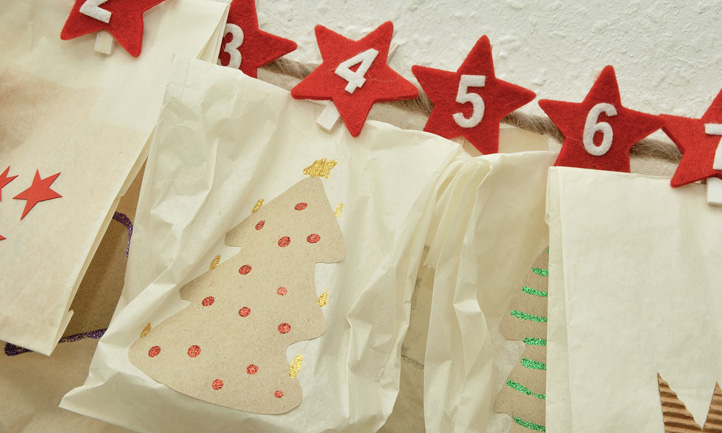Support Yourself & Your Children
Author: Andrea Hug
Through the Holidays
The holidays are here… As a parent who is grieving, thinking about the holidays may seem ludicrous, and yet your children will not let them pass without celebration. Children naturally need to find the joy in the season. But it is an overwhelming time with demands that might cause unmanageable stress. It’s helpful to consider how you can ease the demands of the season and still honor your missing loved one. Below are some suggestions about how to manage your holidays.

CREATE A PLAN
Keeping your child in mind, think about ways that moving through special events might stir up grief. Parties, concerts, and family gatherings often have memories attached to them, which can make events more difficult for you and your child. Make decisions that will honor your loved one, your children, and yourself.
GET PROPER SLEEP AND GOOD NUTRITION
Your health, as well as your child’s health, is affected by grief. Good nutrition and proper sleep help you maintain balance and stay healthy. If you notice a change in your child’s sleeping or eating habits, look at grief as a possible explanation. It may be resolved by simply allowing your child to talk about his or her feelings.
EXERCISE
Natural endorphins are released when you exercise. Exercise helps clear your mind and restore energy. Children do well to get out and play in the fresh air; so do parents!
EVALUATE TRADITIONS
It may be too much to do things the way you “always did things” before. This is a good time to remember that you can change traditions now and still change them back later if you want to. Ask your children what they remember and would like to change or keep. Share with them your thoughts and find a way to incorporate a plan that works for everyone. Your children may have ideas about what they think the holidays should be. If you give them the opportunity to be creative, they might surprise you with the perfect way to move through a difficult time.
INCORPORATE RITUAL INTO YOUR HOLIDAY
Rituals offer comfort and hope. Through ritual, you can honor your desire for healing, name what has changed, and envision a new future. Your children can help you create a special time that gives voice to what is missing for all of you. Lighting a candle at the table, setting a place for your loved one, or mentioning them in stories honors their legacy and eases your heart.
GIVE YOURSELF PERMISSION TO SAY NO
Some days are better than others, and even in the best moment, you may not feel like attending an event. Agree with your child that it’s okay to say no, even at the last minute. Agree to talk about why the plan might need to change. Your open communication may ease your sorrow and help you understand one another. By talking it through, you just might find that you’ve shared your feelings enough to manage the event after all.
ASK FOR AND ACCEPT HELP
You may not be able to do all the things your children may want you to do. Look around and see if there is someone—a family member, a neighbor, a friend, a church community—who might be able to help you and your children. Give them an opportunity to be generous to you during this season.
INFORM A FRIEND
Tell a close friend about how you are really doing. Or call your TAPS peer mentor or the TAPS help and information line at 800-959-TAPS. Getting your worries, grief, and concerns off your chest might help you find relief.
LOVE YOUR CHILDREN AND LET THEM LOVE YOU
Kind expressions of affection and love go a long way toward helping us during difficult times. Sharing hugs restores us in ways we cannot measure. And isn’t it, truly, all about the love?
 By Andrea Hug, MaPC, MPS, LCPC: Andrea Hug is the surviving spouse of Lieutenant Christian A. Hug, USNR, a search and rescue helicopter pilot who died in 1993. She holds master's degrees in both Pastoral Counseling and Pastoral Studies from Loyola University in Chicago, and is a Licensed Clinical Professional Counselor. She worked for two years with TAPS Adult Survivor Care Team, having spent the previous six years working in hospice with young surviving widows and children.
By Andrea Hug, MaPC, MPS, LCPC: Andrea Hug is the surviving spouse of Lieutenant Christian A. Hug, USNR, a search and rescue helicopter pilot who died in 1993. She holds master's degrees in both Pastoral Counseling and Pastoral Studies from Loyola University in Chicago, and is a Licensed Clinical Professional Counselor. She worked for two years with TAPS Adult Survivor Care Team, having spent the previous six years working in hospice with young surviving widows and children.
